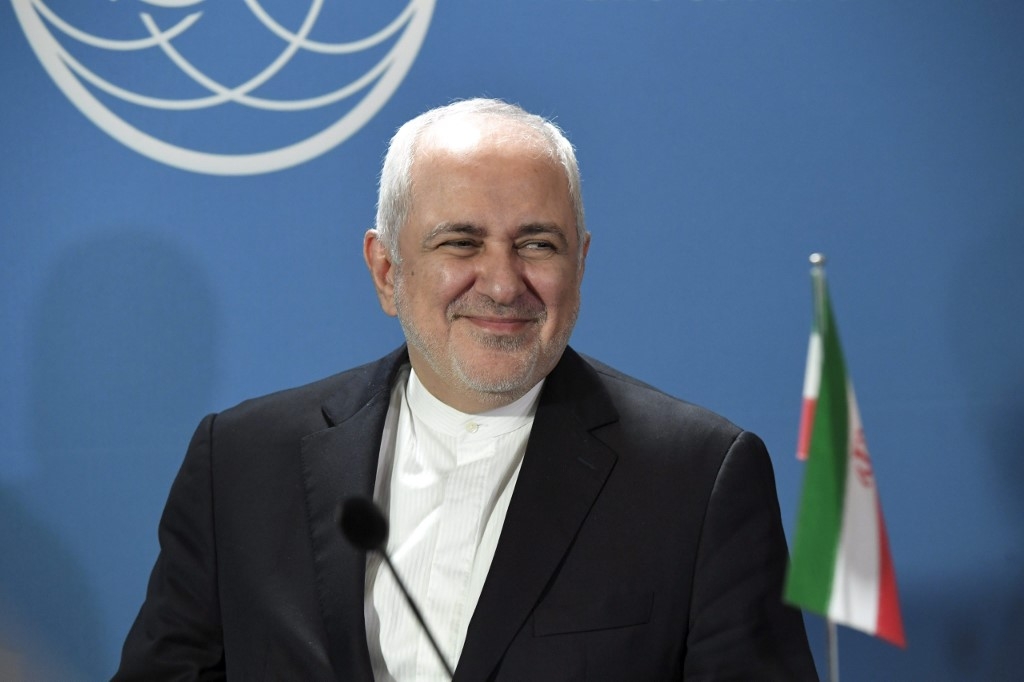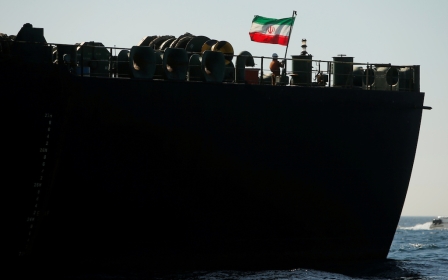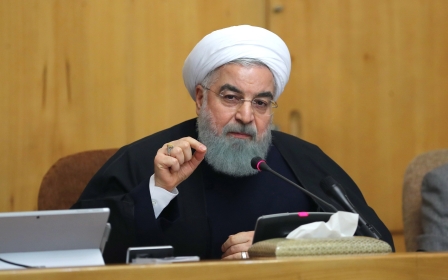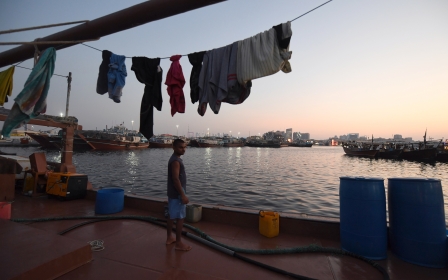Iranian press review: Zarif tells Riyadh it's time to chat

Zarif ready to talk to Riyadh
Iran’s foreign minister has renewed offers to talk with Saudi Arabia about regional issues and the ongoing wars in Syria, Iraq and Yemen, state-run IRNA news agency reports.
Mohammad Javad Zarif's call is the second in less than a month to express his country’s willingness to sit with its regional arch-enemy at the negotiating table. So far, Saudi Arabia has not showed any sign of interest in dialogue with Iran.
On Monday, during his European tour, Zarif stressed that he has been promoting the idea of regional talks since his appointment as foreign minister in 2013. He said, however, that Saudi Arabia has not welcomed the initiative.
Iran’s foreign minister also criticised US arms sales in the Middle East, saying that an arms race would fuel more instability in the region.
“When Americans ask us to stop our missiles programme, I tell them that first they must stop their arms sales to countries in the region,” Zarif said. “In response, they tell me that they [their clients] don’t have the knowledge to use those arms.”
Meanwhile, Khabar Online published the results of a survey showing that “most of its Iranian audience welcome talks between Iran and Saudi Arabia”.
However, the outlet did not provide any further detail about the number of participants and the percentage of supporters and opponents of negotiations.
Women prisoners protest ‘inhumane conditions’
Over 200 inmates in Qarchak, a notorious women's prison located in a desert outside Tehran, rejected their food on 17 August, and sent an open letter to the director-general of Tehran province prisons, in protest at the agonising living conditions in the facility.
“Inmates commit self-harm and take a handful of [anti-depression] drugs to survive prison conditions,” read the letter which was posted on Iranian social media.
“The basic rights of us prisoners should be acknowledged. It is the responsibility of our prison guards to appropriately treat us, safeguard our lives and secure our mental wellness,” the letter added.
Earlier this month, a political prisoner, Atefeh Rangriz, wrote in another letter from the same prison that “Qarchak is just a pseudonym for hell”.
“Even the salty water of this desert is being banned for the dwellers of this limbo, and its showers remind me of the era of gas chambers,” Rangriz wrote.
Qarchak prison is located in the middle of a desert between Tehran and the city of Varamin. Over the past few years, rebellious political prisoners serving their sentences in other prisons were transferred to Qarchak as a punitive measure.
Inmates in this prison have routinely protested the lack of food and water and overcrowded wards with unhygienic conditions.
Tehran hosts talks between Houthis and Europe
Delegations from Yemen's Houthi movement and the ambassadors of the United Kingdom, France, Italy and Germany to Iran held a meeting with senior Iranian diplomats over the Yemen war, the Javan daily reported.
The talks took place on 17 August in Tehran, a week after Houthi spokesman Mohammed Abdul Salam and Iran’s Supreme Leader Ayatollah Ali Khamenei met in the Iranian capital.
According to Javan daily, all the parties participating in the meeting insisted that the 2018 Stockholm agreement between the Houthis and the internationally recognised Yemeni government should come into full effect to stop the ongoing conflict in the poorest Arab country.
The Stockholm deal was inked to stop the fighting in the port city of Hodeidah, as a first step to broker an overall ceasefire in Yemen.
Brain drain deepens
The already existing brain drain issue in Iran has worsened since the implementation of new US sanctions against the country and the deteriorating economic conditions, according to the Aftab daily.
The paper reported that over 150,000 highly educated Iranians leave the country every year in search of a better life abroad.
Iranian sociologist Shadan Karimi told the paper that the rates of emigration from Iran dropped during the first term of President Hassan Rouhani due to the rising "hope for a better future".
However, the sociologist stressed that Iran is witnessing a sharp new increase in the number of skilled workers and educated citizens leaving their homeland.
“The educated people are not the only ones who consider emigration as a solution towards a better future. Today, everyone thinks like that, and this is a general sentiment in Iran,” Karimi said.
*Iranian press review is a digest of reports that are not independently verified as accurate by Middle East Eye.
Middle East Eye propose une couverture et une analyse indépendantes et incomparables du Moyen-Orient, de l’Afrique du Nord et d’autres régions du monde. Pour en savoir plus sur la reprise de ce contenu et les frais qui s’appliquent, veuillez remplir ce formulaire [en anglais]. Pour en savoir plus sur MEE, cliquez ici [en anglais].




